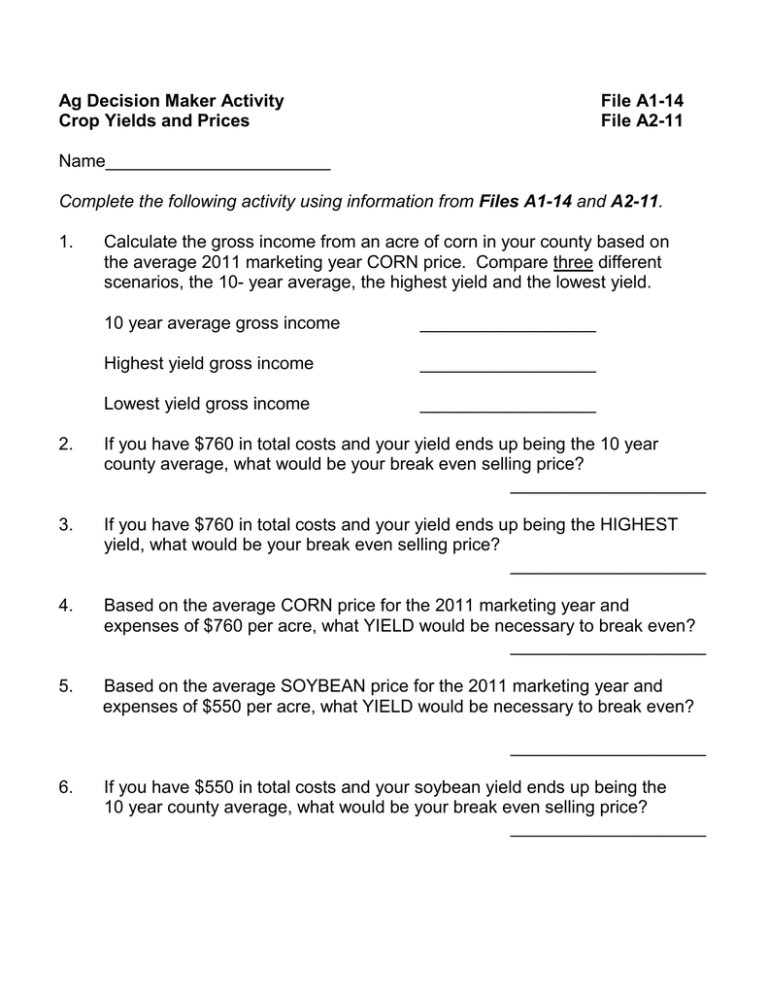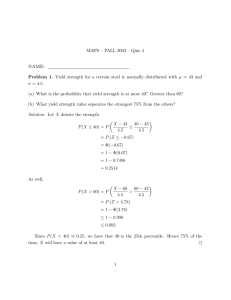Ag Decision Maker Activity File A1-14 Crop Yields and Prices File A2-11
advertisement

Ag Decision Maker Activity Crop Yields and Prices File A1-14 File A2-11 Name_______________________ Complete the following activity using information from Files A1-14 and A2-11. 1. Calculate the gross income from an acre of corn in your county based on the average 2011 marketing year CORN price. Compare three different scenarios, the 10- year average, the highest yield and the lowest yield. 10 year average gross income __________________ Highest yield gross income __________________ Lowest yield gross income __________________ 2. If you have $760 in total costs and your yield ends up being the 10 year county average, what would be your break even selling price? ____________________ 3. If you have $760 in total costs and your yield ends up being the HIGHEST yield, what would be your break even selling price? ____________________ 4. Based on the average CORN price for the 2011 marketing year and expenses of $760 per acre, what YIELD would be necessary to break even? ____________________ 5. Based on the average SOYBEAN price for the 2011 marketing year and expenses of $550 per acre, what YIELD would be necessary to break even? ____________________ 6. If you have $550 in total costs and your soybean yield ends up being the 10 year county average, what would be your break even selling price? ____________________ Ag Decision Maker Activity Continued… Crop Yields and Prices File A1-14 File A2-11 7. Assuming your soybean yield is the 10 year average, how much difference in gross income would be achieved per acre if you sold during the highest month of 2011 versus selling during the lowest month of 2011? ____________________ 8. Using the answer from the previous question, how much difference would this amount to if you have 500 acres of soybeans and sold it all at once? ____________________ . . . and justice for all The U.S. Department of Agriculture (USDA) prohibits discrimination in all its programs and activities on the basis of race, color, national origin, gender, religion, age, disability, political beliefs, sexual orientation, and marital or family status. (Not all prohibited bases apply to all programs.) Many materials can be made available in alternative formats for ADA clients. To file a complaint of discrimination, write USDA, Office of Civil Rights, Room 326-W, Whitten Building, 14th and Independence Avenue, SW, Washington, DC 20250-9410 or call 202-720-5964. Issued in furtherance of Cooperative Extension work, Acts of May 8 and July 30, 1914, in cooperation with the U.S. Department of Agriculture. Cathann A. Kress, director, Cooperative Extension Service, Iowa State University of Science and Technology, Ames, Iowa.

